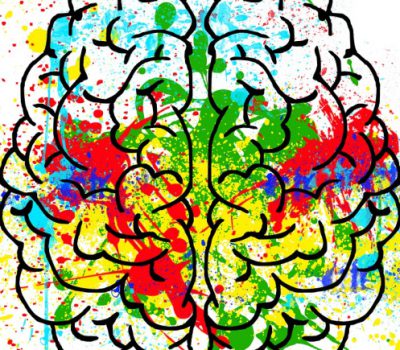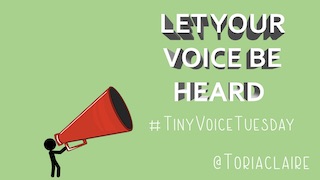


Our team sorts through all blog submissions to place them in the categories they fit the most - meaning it's never been simpler to gain advice and new knowledge for topics most important for you. This is why we have created this straight-forward guide to help you navigate our system.


And there you have it! Now your collection of blogs are catered to your chosen topics and are ready for you to explore. Plus, if you frequently return to the same categories you can bookmark your current URL and we will save your choices on return. Happy Reading!

Schools are places for learning – for the adults in them as well as for the children and young people. Those adults tend to believe in the value of learning and enjoy it – that’s how they came to be there in the first place!
But menopause? One of the reasons that menopause merits a school’s attention is that until recently it was a subject that was rarely discussed. And while for some of us, it feels as if that conversation is everywhere – for others, it really isn’t.
It’s that lack of information – and the fact that the information that we do come across, on social media for example – may not be reliable means that perimenopause can remain undiagnosed or be mistreated.
Perimenopause is weird. It shows up in different ways. It’s often assumed that it’s all about missed periods and hot flushes. But what if it’s about chronic memory loss and menstrual flooding? Or joint pain? Crazy allergies? Rage? What if it’s mistaken for anxiety or depression? It happens a lot.
Doctors often do not spot perimenopause so it’s important we recognise it for ourselves. Sometimes we’re lucky and someone drops a hint at the right time. But even when there’s a close personal relationship, those conversations can go horribly wrong – so it’s really not a great idea in a professional situation.
So schools need to make sure staff have reliable information about perimenopause and menopause, empower them to identify what’s going on and take appropriate action.
But what about those who aren’t there yet? There may be a few for whom it’s closer than they think. Those first signs frequently show up in our late thirties or early forties – and for some, it can be much earlier or happen as a consequence of surgery or medical treatments. Knowing what’s coming means that we know what to look out for – and how to enter that phase of our life in as healthy a way as possible.
The rest of the staff also need to have an understanding and awareness of what their colleagues might be experiencing. We all live and work alongside people experiencing menopause and perimenopause.
The menopausal transition can cause very particular issues in school. For example, it can be very difficult to get to the toilet when we need to – and when we have sensitive bladders or unpredictable menstrual bleeding then we can need to get to the toilet in a hurry! We may need a little help with that!
We may need ways of managing brain fog and memory loss. We may need our classrooms to be made more comfortable for us when we’re suffering from hot flushes or joint pain.
To have the whole staff learn about menopause can make it easier for those experiencing it to ask for help and for their managers to navigate those very personal conversations.
The thing that those of us struggling with perimenopause and menopause most often need the most is understanding and compassion. We may need other staff to realise that this is tough. It helps if they are able to listen to what their menopausal colleagues need to say and are able to deal with those conversations in a way that doesn’t involve covering up discomfort with the wrong sort of joke.
While we need support we also need our colleagues to understand that we’re not past it. Just because we occasionally overheat, forget our words, or get flustered or upset in a way we never used to, doesn’t mean we’re not up to the job.
We just need a little extra support sometimes. And to know that our colleagues and the school are on our side.

The author

Read more

Read more

Read more

Read more

Read more

Read more

Read more

Read more


Are you looking for solutions? Let us help fund them! Nexus Education is a community of over 11,000 schools that come together to share best practise, ideas and CPD via online channels and free to attend events. Nexus also offers funding to all school groups in the UK via nexus-education.com


Established in 2011, One Education is a company at the heart of the education world, supporting over 600 schools and academies. Our unique appeal as a provider is in the breadth and synergy of the services we offer, supporting school leaders, teachers and support staff to achieve the best possible outcomes for their pupils and staff.

School Space is a social enterprise that has empowered schools for over 12 years through their profitable and hassle-free lettings services. So far, they’ve generated over £5 million in revenue for education, helping to connect over 200 schools with their local communities.


Unify is an online sales and marketing tool that allows users to create tailored personalised documents in moments.


There’s nothing special about the energy we sell. In fact, it’s exactly the same energy as all our competitors provide. But there is something special about the way we do it. Where others complicate the process, we simplify it. Where others confuse customers with hidden terms, we’re an open book. And where others do all they can to make as much money from their customers as possible, we do all we can to make as little. Everything we do, we do it differently. Our customers are a privilege. One we’ll never take advantage of.


Securus provide market-leading monitoring solutions to safeguard students on ALL devices both online and offline. We also offer a full monitoring service, where we carry out the monitoring on behalf of the school, freeing up valuable staff resources. From the smallest school to large MAT groups, Securus offers safeguarding protection for all!


Bodet Time offers dedicated solutions to education through lockdown alerts, class change systems, PA and synchronised clock systems. Improving time efficiency of the working and school day; ensuring safety through lockdown alerts; increasing communication with customised broadcast alerts.


Robotical makes Marty the Robot - a walking, dancing coding robot that makes programming fun and engaging for learners as young as 5. Our robots come with a full Learning Platform that has complete teaching resources, to make lesson planning a breeze.